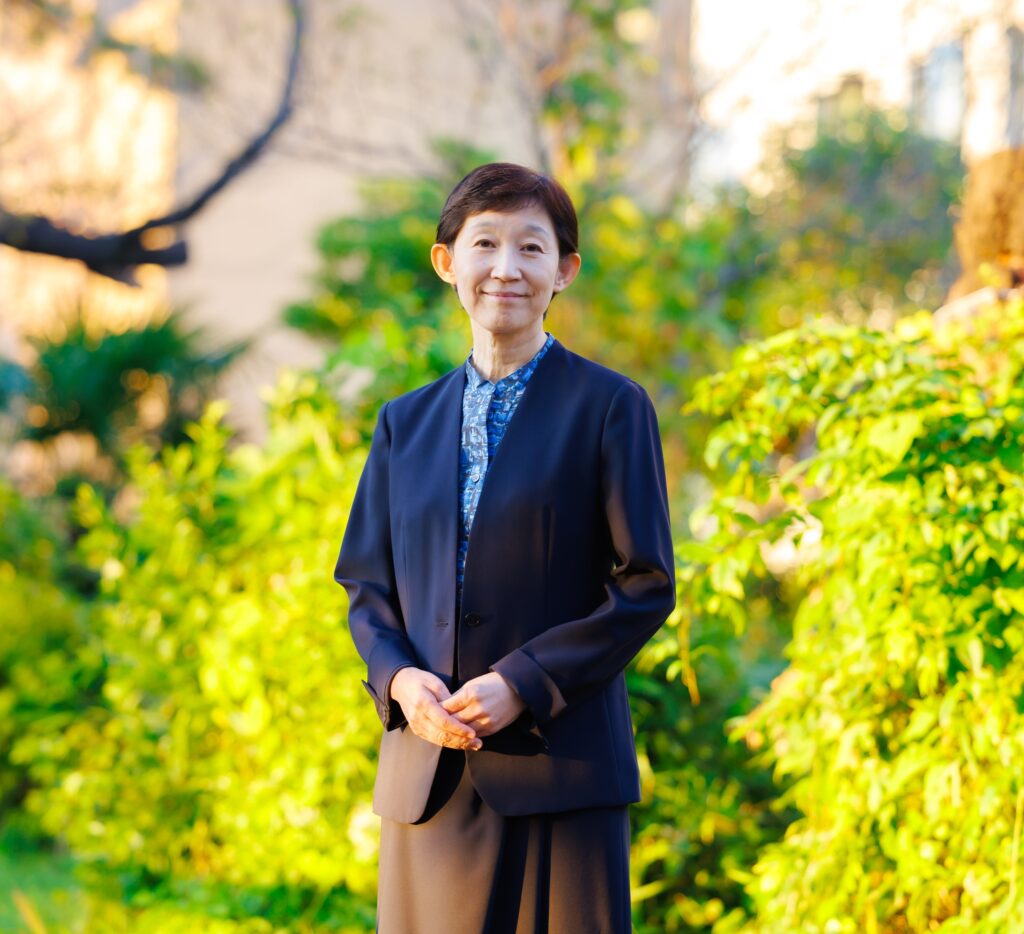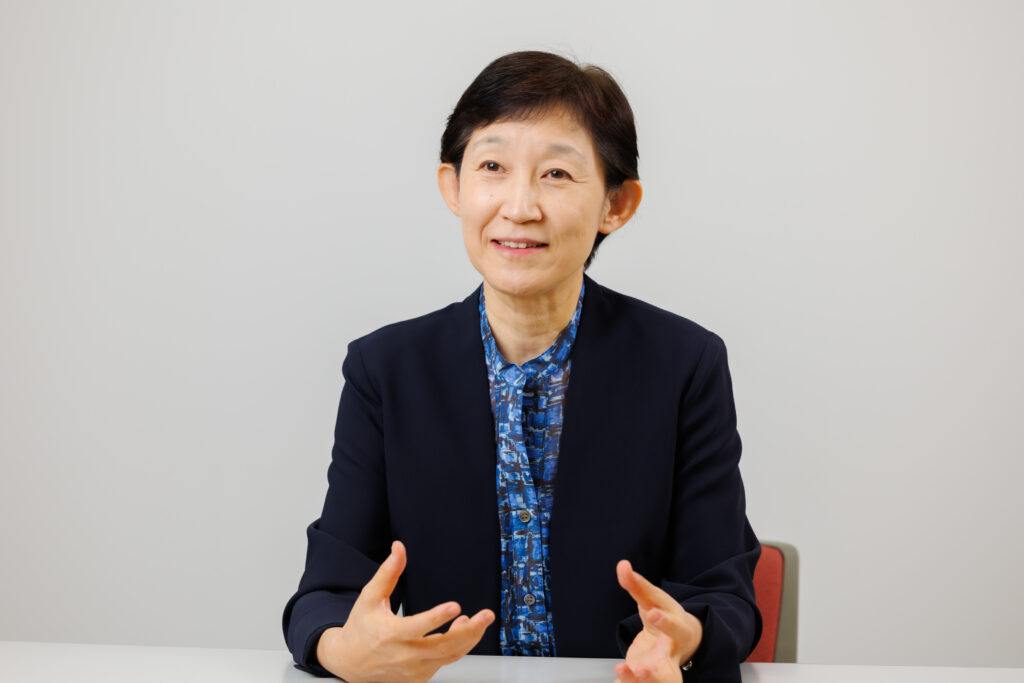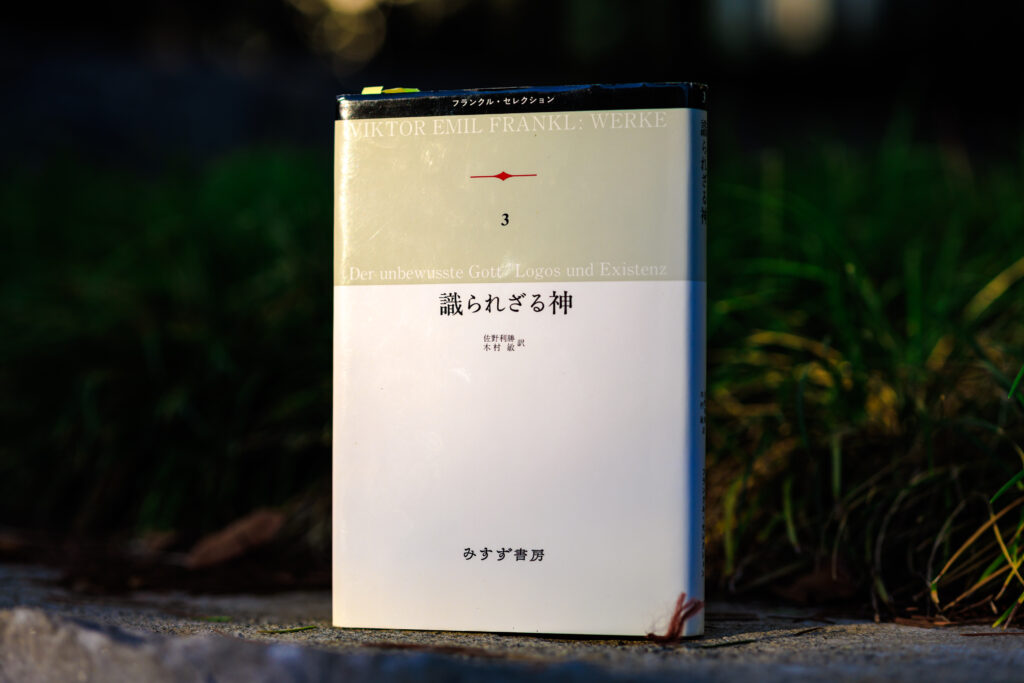
We are now in the era of the 100-year life. While longer lives are better, as we age we also experience various signs of aging and loss. Professor Nahomi Takeda from the Faculty of Theology considers the definition of human development as we continue to age and experience weakness, and examines the concept of development across the entire life span from the perspective of Christianity.
When I learned about the life cycle theory as a student, I began to consider what development might mean at the stage of old age. This led me to think about lifelong development.
Development is often understood as the ability to do something you were previously unable to do. However in old age, we become incapable of doing something that could previously be done, and must also say goodbye to loved ones.
Yet there are people, wise elders, who accept weakness, grief, and vulnerability, and seek to develop a deeper humanity. This aspect of a greater depth of humanity is an area I am interested in exploring.
Encountering life guides and knowing true wisdom

My research theme explores the concept of wisdom from two perspectives: lifelong development psychology that sees wisdom as a human characteristic; and Christianity that talks about God’s wisdom in a way that transcends human thinking.
These theme explores our modern perception of wisdom as the fruit of development, while also considering value gained from weakness, and wisdom that is bestowed rather than developed—in apparent opposition to standard concepts of human development through capability.
Wisdom and old age are often associated with each other, such as when we talk about the wisdom of elders, but my research has shown that wisdom is not limited to knowledge and experience. Wisdom can also be recognized in traits such as generous, selfless use of knowledge for the benefit of others, living true to oneself, making decisions from long-term perspective, and humility and love for humanity informed with empathy and understanding of one’s own and others limits.
There are people who, despite having lost various abilities due to age, have an inner self that is open to other people and by their very existence show the love and goodness of humanity. These people are life guides who teach us the true meaning of wisdom.
Everyone is drawn to love and goodness that exist at a deeper level
In Christianity, God is not looking down from heaven, but chooses to descend to be beside humans, interact with them, and give them everything. This is embodied in the life of Jesus Christ who shouldered weaknesses and difficulties, and sacrificed himself so that others may live.
This is different from the perspective that prioritizes obtaining more with greater efficiency. I think even people in the Bible found Jesus’s way of life to be unfathomable. However, people who were struck by the love that was at the core of those events expressed it as God’s wisdom.
Besides being a religious text, the Bible is also a literary classic that explores humanity. I think my life work is to deepen understanding about the meaning of wisdom to those of us in the modern age and pass it on to future generations by explaining humanity through the Bible and listening carefully to the words of people who live religiously.
Another point about exploring humanity is that, at the deepest level, humans are drawn to thing that are good, to things with meaning, and to love. It is why we undertake experiences that resonate with others at a deep level, feel deep pain when facing a reality where goodness and love are harmed, and take action to live together.
Respecting human dignity is about placing importance on this dimension of depth. I hope to use this dimension to examine the path of humanity as we live and develop together.
The book I recommend
“Der unbewusste Gott: Logos und Existenz”(The Unconscious God: Psychotherapy and Theology)
by Viktor Emil Frankl, Japanese translation by Toshikatsu Sano and Bin Kimura, Misuzu Shobo

Viktor Frankl was a psychiatrist who pursued the essence of being human. This book states that humans are entities that are open to responding freely to the calls of conscience which resonate with the depths of their existence. Encountering this book gave me the perspective of thinking about the meaning of being human.
-
Nahomi Takeda
- Professor
Department of Theology
Faculty of Theology
- Professor
-
Graduated from the Department of Psychology, Faculty of Letters, Keio University, completed the master’s program of Seattle University’s Graduate School of Education, and received her Ph.D. in Education after completing the doctoral program of the College of Graduate Studies, University of Idaho. Received her STL after completing the master’s program of Sophia University’s Graduate School of Theology. Assumed her current position in 2016.
- Department of Theology
Interviewed: October 2023